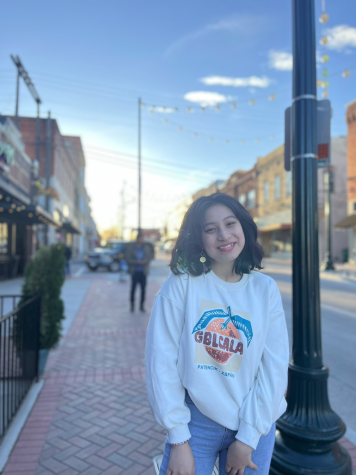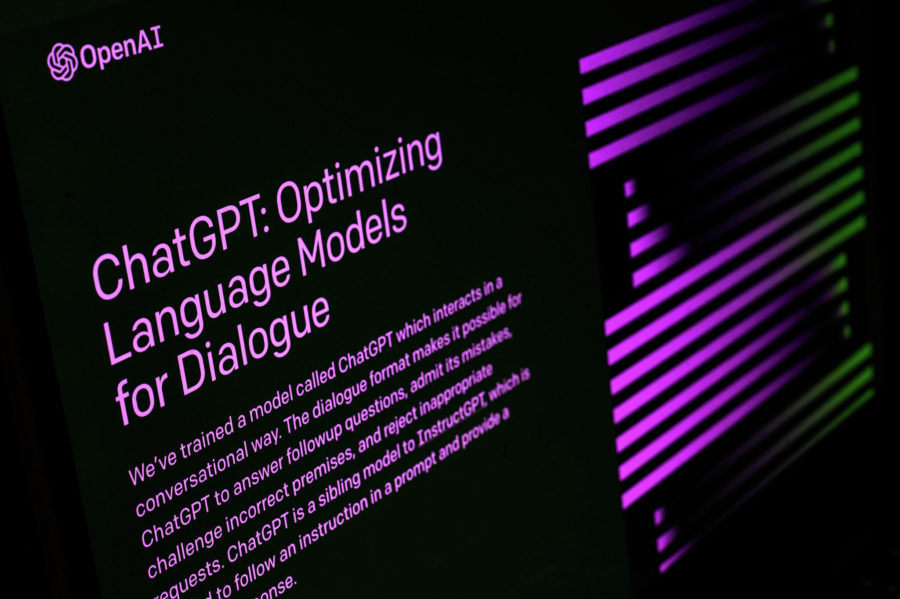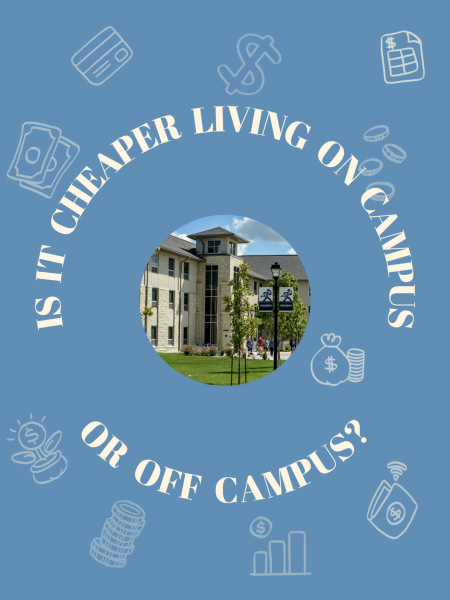ChatGPT: Neither a threat nor magic in the classroom
ChatGPT is an open AI chatbot that can hold conversations with humans on a wide range of topics. It was launched at the end of November, 2022.
Although released recently, Chat Generative Pre-Trained Transformer, commonly known as ChatGPT, is a wildly popular AI chatbot developed by OpenAI.
ChatGPT’s main feature is its ability to engage in natural language conversation and generate responses to a wide range of topics and questions. Additionally, it learns and improves over time as it interacts with users and receives feedback.
However, ChatGPT is not the only one learning and improving its components.
Melanie Burdick, chair and a professor in the English department, hinted at their similar approach towards the chatbot.
“We are still learning what ChatGPT is capable of,” Burdick said. “And right now, it’s really good at creating grammatically correct and mechanically correct writing, but that writing is pretty much voiceless and based on things that can be found on the internet.”
Joseph Kendall-Morwick, an assistant professor of computer information sciences, suggested a similar stance on the application.
“All it is doing is generating text based on things that are seen,” Kendall-Morwick said. “It doesn’t have any specific knowledge integrated with it.”
ChatGPT, although initially questioned to be a big threat to academia, does not seem like one. At least not at present.
“The ultimate goal in academia is being able to produce new knowledge,” Kendall-Morwick said.
However, ChatGPT miserably fails to do so. The chatbot can summarize content that is found previously on the internet, however, it cannot compete with the high reasoning power of humans while simultaneously citing their information for it to be practical and correct.
Additionally, the chatbot cannot analyze articles that are too new or without many opinions.
“If you ask to write about the ‘Great Gatsby,’ it can do an analysis of the ‘Great Gatsby,’” Burdick said. “But, if you ask to do an analysis of a short story published in The New York Times last week, it can’t do that because that’s too new and there’s not anything on the internet about it.”
The chatbot or any other AI currently does not seem intended to replace human reasoning, but rather be a tool to automate simple tasks to make other processes of the work easier and more efficient.
“There’s a lot of use to it, but it fails miserably in the task of replacing this high reasoning that we attribute to humans right now,” Kendall-Morwick said.
Moreover, ChatGPT is horrible when it comes to citations.
“If you ask it to do citations, they are usually wrong or made-up citations,” Burdick said.
However, ChatGPT is an excellent entryway to an introduction to a concept or any reading.
“I don’t think it would be good to replace the reading of the text, but it would be an entryway where they could start understanding and then help them comprehend some of the more complex ideas,” Burdick said.
Overall, ChatGPT is part of a larger effort to develop advanced AI technologies that can assist humans in a wide range of tasks and development. The goal is not to replace human reasoning or overshadow academia but rather to create more efficient and effective ways for people to interact with machines, using natural language as the primary means of communication.
That being said, no one can deny the rapid progression of AI technologies as OpenAI works on Gpt 4 and google pushes their own AI chatbox, Bard, staying well informed and aware is always beneficial.
Edited by Glorianna Noland and Aja Carter
Your donation will support the student journalists of Washburn University. Your contribution will allow us to purchase equipment and cover our annual website hosting costs.









